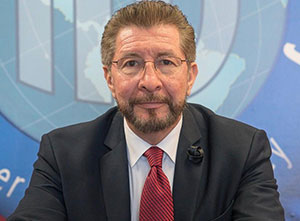The urgency and importance of dismantling the narco-state in Bolivia

By: Carlos Sánchez Berzaín - 09/11/2025
Share:
The establishment and support of 21st-century socialist dictatorships in the Americas has transformed Cuba, Venezuela, Nicaragua, and Bolivia into narco-states and the greatest threat to the life and security of democracies. The supplanting of politics by drug trafficking is advancing, seeking to create a subculture to legitimize and legalize crime. In the last 22 years, Bolivia has gone from being the most efficient and successful country in the fight against drug trafficking to a narco-state that urgently needs to be dismantled in the interest of the region and the world.
Deeply affected by drug trafficking, Bolivia regained democracy on October 10, 1982, with the presidency of Hernán Siles Suazo. However, it was on July 19, 1988, that President Víctor Paz Estenssoro enacted the "Law on the Coca Regime and Controlled Substances," or "Law 1008," which established the four elements of this policy: "prevention, eradication of illegal coca, interdiction, and alternative development." This law and its implementation became a "State Policy."
In August 1993, Bolivia had approximately 60,000 hectares of illegal coca crops, the base for cocaine production. The Chapare region of the Cochabamba tropics was an area controlled by illegal coca growers under the leadership of Evo Morales, over which the state had lost control; politics were tainted by accusations of drug trafficking links. Ten years later, in October 2003—when the coup d'état took place—Bolivia had only 3,000 hectares of illegal coca. The "zero illegal coca" policy had deprived drug traffickers of their raw material. The narco-state has led Bolivia to have approximately 100,000 hectares of illegal coca today.
On October 17, 2003, President Sánchez de Lozada was overthrown. He had been publicly warning that the repeated conspiracies and attempts at a coup and assassination against him were aimed at establishing a “dictatorship/narco-state.” The day after the overthrow, Carlos Mesa, the treacherous vice president-turned-president, Evo Morales, and the conspirators met in El Alto and approved the “October Agenda,” outlining their program: “a constituent assembly, nationalization of gas, protection of coca cultivation, prosecution of those overthrown…and more.”
The construction of the dictatorship/narco-state began with the coup of October 17, 2003, which advanced when Evo Morales disregarded international anti-narcotics agreements in 2008 by expelling the DEA and the United States Ambassador, which was institutionalized when they replaced the Constitution of the Republic with the plurinational state, and was consolidated with the “general law of coca” 906 of March 8, 2017 which replaces law 1008.
The government of this narco-state—with laws that institutionalize the protection of drug trafficking and terrorism—is the one that has been handed over to President Rodrigo Paz Pereira. The Bolivia that Paz inherits is a plurinational narco-state with a constitution, laws, and structure designed and operating to promote and protect crime, drug trafficking, terrorism, and impunity. The dictator has left, but not the dictatorship. President Rodrigo Paz has assumed the presidency, but he does not yet wield the power that remains in the hands of the dictatorship/narco-state.
The objective reality is extremely serious. Evo Morales and his criminal group control the Cochabamba tropics as a free zone for drug trafficking; the country is a protected area for drug traffickers and terrorists; cartels and mafia groups from all over the world operate within its territory; the most important group of coca and cocaine producers is a political party—the Movement for Socialism (MAS)—which controls most of the municipalities and governorships in the country; the justice system depends on the regime that established the narco-state; drug traffickers who have held public office, starting with Evo Morales, enjoy impunity; crime is organized and organized; and more.
The dismantling of the narco-state must follow the three essential steps of the transition from dictatorship to democracy: 1.- eliminate the legal structure of the narco-state; 2.- no impunity, prosecuting, capturing and extraditing drug traffickers and those linked to drug trafficking, starting with Evo Morales; and 3.- outlaw the instruments that drug trafficking uses to be part of politics, such as the MAS and so-called social or trade union organizations of the narco-system.
The implementation of these three pillars is only possible with the support of the people as it exists today, with competent authorities, with a suitable Special Force for Combating Drug Trafficking, and with the essential international cooperation that the return of the DEA entails, under the terms and scope of the agreements in force until 2008, which were disregarded by Evo Morales. Bolivia knows how to fight and defeat drug trafficking; it did so between 1993 and 2003 and served as a model for the Americas.
*Lawyer and Political Scientist. Director of the Interamerican Institute for Democracy
«The opinions published herein are the sole responsibility of its author».